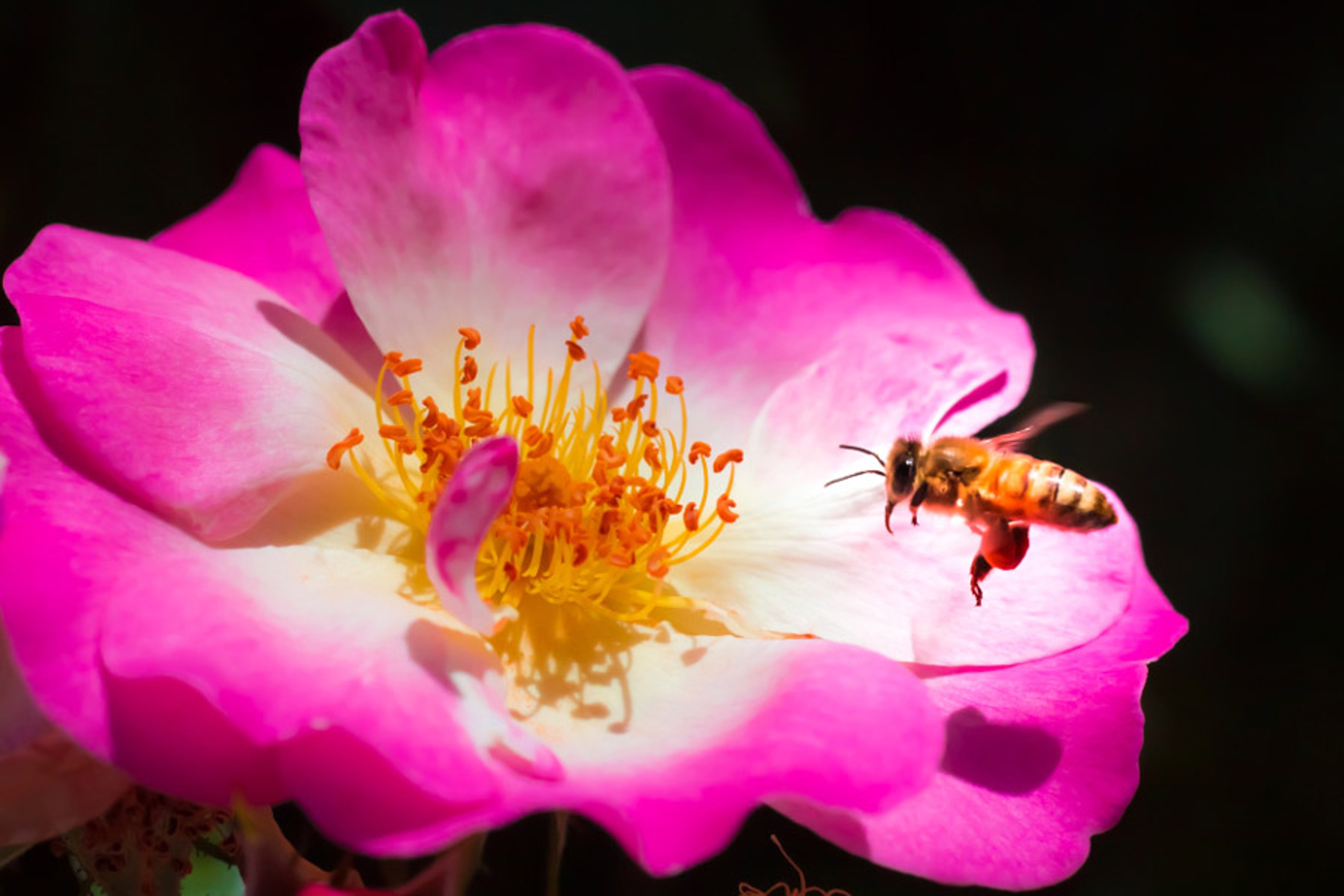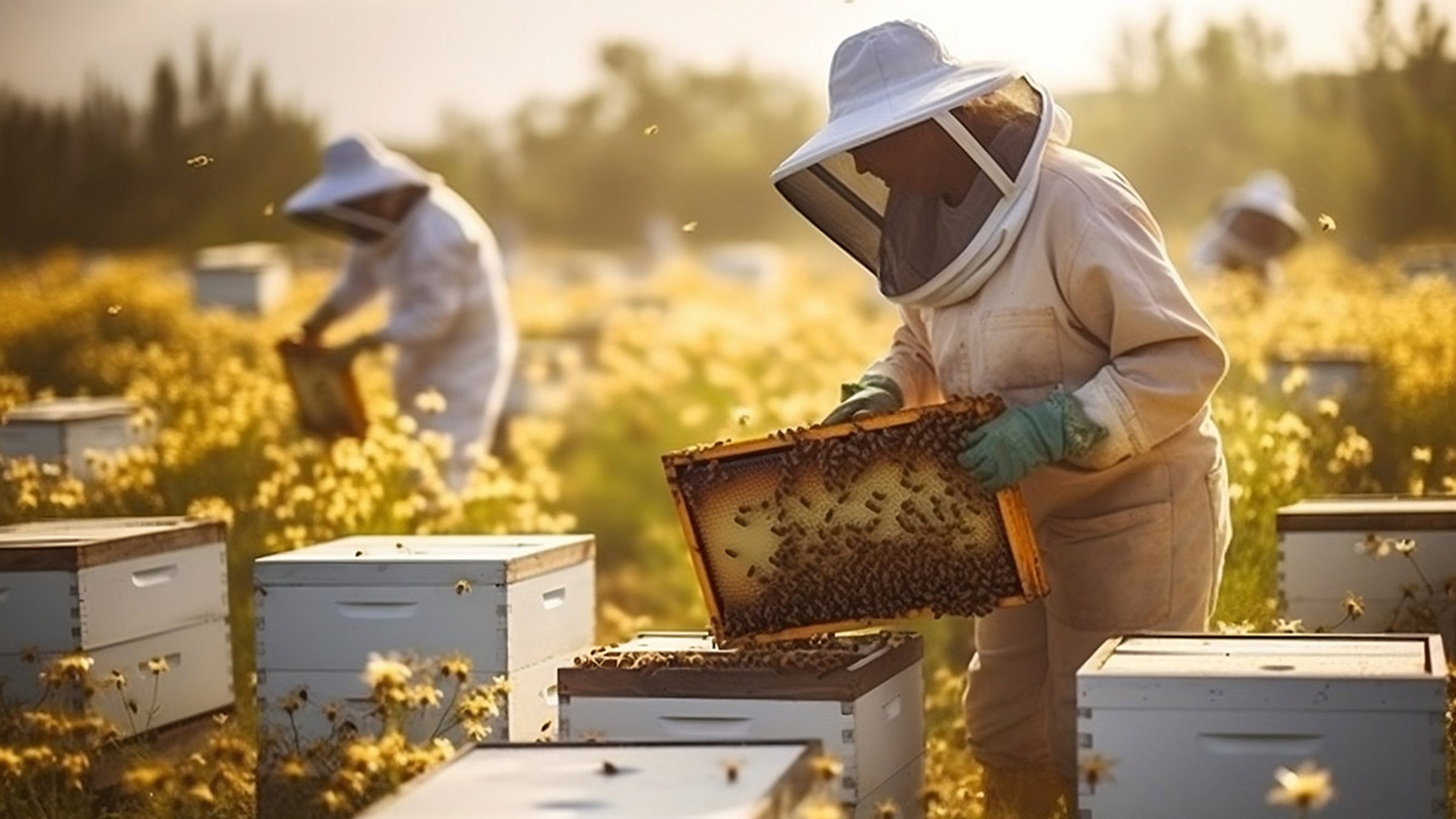Buzzing for Change: 5 Ways You Can Help Save the Bees
Learn how you can make a difference in the survival of these pollinators and the health of our environment.
Aug 01, 2023
Bees, those tiny yet mighty creatures, play a crucial role in our ecosystem. They are responsible for pollinating a significant portion of the world's crops, including fruits, vegetables, and nuts. Unfortunately, bees face numerous challenges today, such as habitat loss, pesticide exposure, climate change, and disease. As concerned individuals, we can all contribute to the conservation of these vital pollinators — both on National Honey Bee Day (this year celebrated on Aug. 19) and year-round.

Here are five actionable ways you can help save the bees and ensure a more sustainable future for our planet.
1. Plant bee-friendly gardens
Creating a bee-friendly garden is one of the most effective ways to support these incredible pollinators. Incorporate native plants and flowers that provide nectar and pollen throughout the year. Opt for a variety of colors, shapes, and sizes to attract different bee species. Some excellent choices include lavender, sunflowers, wildflowers, and herbs like thyme and rosemary. Avoid using pesticides and herbicides, as they can harm bees and other beneficial insects. Instead, consider natural alternatives or embrace organic gardening practices.
2. Provide bee habitats
Bees need safe and suitable habitats to nest and raise their young. You can make a positive impact by setting up bee houses or bee hotels in your backyard or community spaces. These artificial structures mimic the nooks and crannies bees naturally seek out, such as hollow stems or holes in dead trees. Ensure the bee house is placed in a sunny spot, protected from strong winds. By providing nesting sites, you offer bees a secure environment to thrive and contribute to pollination.
3. Support local beekeepers
Beekeepers play a vital role in bee conservation. By purchasing local honey and beeswax products from reputable beekeepers, you support their efforts and contribute to the local economy. Moreover, bees raised by dedicated beekeepers are often healthier and better equipped to withstand environmental challenges. Consider visiting farmers markets or local beekeeping associations, or donating to the American Beekeeping Federation, to find and support these passionate individuals who work tirelessly to protect bees and their habitats.

4. Spread awareness and educate
One of the most powerful tools for change is knowledge. Educate yourself and others about the importance of bees in our ecosystem and the challenges they face. Share information through social media, organize workshops or presentations, or engage in discussions within your community. By raising awareness, you inspire others to take action and create a collective impact.
5. Create water sources
Bees require water for hydration and maintaining hive humidity. Create a shallow water source in your garden by placing a shallow dish or birdbath with stones or twigs for the bees to land on while drinking. Ensure that the water is refreshed regularly to prevent the growth of mosquitoes. This simple act can go a long way toward supporting the health and survival of bees, particularly during hot and dry seasons when water is scarce.
The plight of bees demands our attention and action. By implementing these five simple yet impactful ways to help save the bees, we can collectively make a difference in their survival and the health of our environment and food supply.






